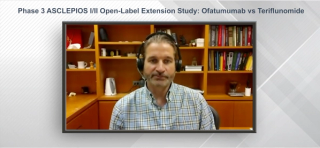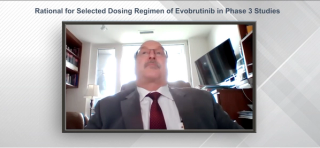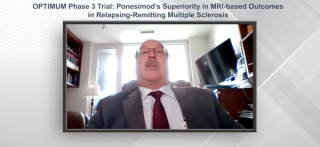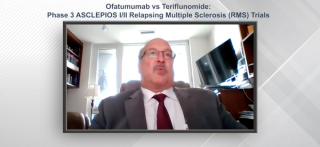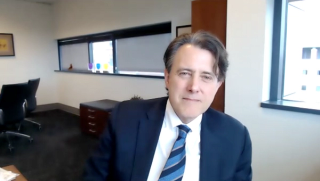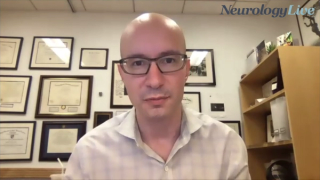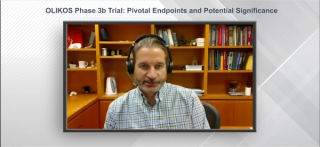
MS and Demyelinating Disorders
Latest News
Latest Videos

CME Content
More News

The subgroups were defined by baseline characteristics that are known to be potential modifiers of risk to conversion to clinically-definite multiple sclerosis, including age, gender, first classification of demyelinating event, presence of T1 Gd+ lesions, and number of active T2 lesions.




The investigators suggested that this may be indicative of intrathecal IgG synthesis as a useful marker of disability worsening in patients with MS, as well as in making early treatment decisions.

NfL levels were reduced during treatment with fingolimod, providing further evidence of the long-term benefit of the drug and demonstrating a greater impact of highly effective therapy in relapsing-remitting multiple sclerosis.

The staff neurologist at Cleveland Clinic shared his insight from the study, as well as what these data can do to further inform the use of this biomarker in progressive MS trials.

The lead investigator noted that “the study results are a promising step toward having a scientifically-validated tool for clinical use that can facilitate physician-patient conversations and ultimately help to get ahead of MS progression.”

Evobrutinib is the first BTK inhibitor to demonstrate clinical proof of concept in multiple sclerosis, reducing Gd+ lesions in a 75-mg, once-daily dose.

Compared to interferon beta-1a, the reduction of grey matter volume loss was greater in those treated with both doses of the oral S1P receptor modulator across all age groups, including the youngest patients at the highest risk for brain volume loss.

The professor of neurology at the Icahn School of Medicine at Mount Sinai spoke about what’s currently known about medical marijuana’s use, how CBD fits into the conversation, and what research still needs to be done.

The sphingosine1-phosphate receptor modulator was shown to annualize relapse rates by more than 70% for patients switching from other disease-modifying therapies such as dimethyl fumarate; teriflunomide, and daclizumab.

The Cleveland Clinic neurologist explained how the combination of the SDMT and EDSS measurements could improve the phase 3 clinical trial landscape in multiple sclerosis.

Changes in MS diagnostic criteria and the availability of highly effective DMTs has deemed the risk for postpartum relapse nearly irrelevant for the majority of patients with MS.

While the overall link is only suggestive, new findings from a preliminary study have implied that there may be a link between sugar-sweetened beverage consumption and a higher disability status in MS.

Although highly efficacious DMTs have improved outcomes for a growing number of patients, the majority of people with MS are still subjected to the day-to-day consequences of the disease’s symptoms, which often have a more debilitating effect on the patient than the disease itself.

Neurology News Network for the week ending April 27, 2019.

Responses from 1300 physicians suggest that increasing patient load and adding ancillary services may be the key to increasing annual income.

The designation was granted by the FDA based on the results of the largest study ever conducted with monotherapy in NMOSD, which were favorable for the anti-CD19 antibody.

Patients with multiple sclerosis who were exposed to teriflunomide during pregnancy experienced similar risks of major birth defects and spontaneous abortions to the general population’s rates of 2% to 4% and 15% to 20%, respectively.

The senior preclinical and clinical imaging scientist at the National Institute of Neurological Disorders and Stroke spoke about the potential of the central vein sign to help improve the time to an accurate diagnosis in MS.

Results of a recent real-world study at 2 MS centers have uncovered misdiagnosis rates of 17% and 19%, with patients facing an average time of misdiagnosis of 4 years during which they may be subject to numerous risks due to improper treatment.

Over the course of 2 years, findings revealed that serum NfL levels were significantly higher in patients with evidence of disease activity compared to those with no evidence of disease activity as well as 35 age-matched healthy controls.

Pembrolizumab resulted in a decrease in the detection of programmed cell death protein 1 on lymphocytes in both cerebrospinal fluid and peripheral blood, with 5 of the 8 patients displaying clinical improvement or stabilization.

The senior preclinical and clinical imaging scientist at the National Institute of Neurological Disorders and Stroke gave a presentation on a volumetric segmented echo-planar-imaging (3D-EPI) sequence, which could be used to detect novel biomarkers such as the central vein sign rapidly.






